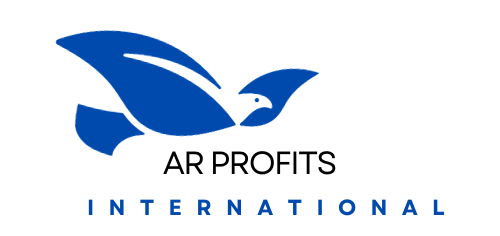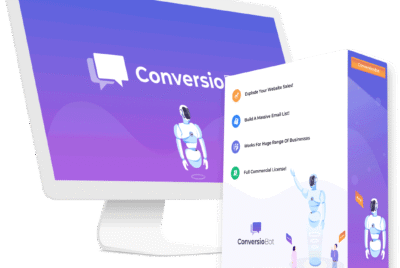Navigating the World of Affiliate Marketing: A Beginner’s Roadmap to Online Earnings
In today’s digital landscape, the realm of affiliate marketing stands as a beacon for individuals aspiring to monetize their online presence. This marketing approach allows individuals to promote products or services and earn a commission for every sale made through their referral links. Platforms like Amazon Associates and ClickBank offer robust affiliate programs, making it an enticing avenue for newcomers seeking opportunities to earn money online. Here’s a comprehensive guide detailing the steps for beginners to kickstart their affiliate marketing journey.
Understanding Affiliate Marketing
1. Grasping the Concept
Affiliate marketing involves partnering with companies or brands and promoting their products/services through unique referral links. When a sale occurs through these links, the affiliate earns a commission, serving as a middleman between the consumer and the seller.
2. Choosing the Right Affiliate Program
Research reputable affiliate programs aligned with your niche or interests. Amazon Associates caters to a vast array of products, while ClickBank focuses on digital products like e-books, courses and software. Choose a program that resonates with your audience. See our article of “The 20 Best Affiliate Marketing Programs“
Steps to Launching Your Affiliate Marketing Journey
1. Selecting Your Niche
Identify your niche based on your interests, expertise or audience preferences. A focused niche allows for targeted marketing efforts and better engagement.
When choosing your niche in freelancing, utilizing tools like Google Trends, SEMrush, and others can provide valuable insights into market demand, competition and trends. Here’s an overview of these tools and their accessibility:
Google Trends
- Availability: Free to use
- Usage: Google Trends offers insights into search volume trends for specific keywords or topics over time. It helps freelancers understand the popularity of certain niches, identify seasonal trends and compare the interest in different keywords or topics. You can explore various keywords related to your skills to gauge your potential demand.
SEMrush
- Availability: Both free and paid versions available
- Usage: SEMrush offers comprehensive data about search volume, competition, keyword difficulty and more. The free version provides limited access to these features, allowing beginners to conduct basic keyword research and competitive analysis. The paid version unlocks more in-depth data and analysis, allowing for a deeper dive into niche research and competitor analysis.
Other Tools and Platforms
There are several other tools and platforms that can aid beginners in niche selection:
- Ahrefs: Provides insights into organic search, backlink analysis, keyword research, and competitor analysis.
- Moz: Offers tools for keyword research, link building, and website analysis to understand the competitiveness of niches.
- BuzzSumo: Helps identify trending topics and content that performs well on social media platforms.
See our article of “The Best Tools For Niche Research“
Tips for Beginners:
- Explore Various Tools: Try out different tools during their free trial periods or use the free versions to get a feel for their capabilities and the insights they offer.
- Focus on Free Features Initially: Start with the free versions of tools to understand the basics of keyword research, search volume and competition analysis.
- Understand Your Needs: Evaluate your specific requirements as a freelancer. Determine which aspects of niche selection (e.g., keyword research, competitor analysis) are most critical for your decision-making process.
- Consider Multiple Data Sources: Rely on multiple tools and data sources to cross-verify information and get a more comprehensive understanding of the market and niche viability.
- Stay Updated: Niche preferences and market trends can evolve. Regularly monitor trends and adapt your strategies accordingly to stay relevant.
In conclusion, while tools like Google Trends and free versions of SEMrush provide valuable insights for beginners, exploring various platforms and understanding their offerings can help in making informed decisions when choosing a niche in the freelancing landscape.
2. Meaning and Importance of Keywords and Keyphrases
Keywords and keyphrases play a crucial role in affiliate marketing and content creation as they determine several aspects of a marketing campaign’s success:
1. Search Engine Visibility
Keywords and keyphrases help search engines to understand the content of a webpage and index it accordingly. By incorporating relevant keywords into your content, you increase the likelihood of your content appearing in search engine results pages (SERPs) when users search for related terms.
2. Targeted Audience Reach
By targeting specific keywords and keyphrases related to your niche or industry, you can attract users who are actively searching for information or products related to that topic. This helps you reach a more targeted audience that is more likely to engage with your content or affiliate offers.
3. Content Relevance and Quality
Using relevant keywords and keyphrases ensures that your content remains focused and relevant to the needs and interests of your target audience. High-quality content that addresses the user’s search intent and provides valuable information or solutions is more likely to rank well in search results and attract organic traffic.
4. SEO and Ranking Factors
Keywords and keyphrases are important for search engine optimization (SEO) as they signal to search engines what your content is about. By optimizing your content with targeted keywords, you improve its chances of ranking higher in search results for those terms. Factors such as keyword placement, density, and relevance influence how search engines assess the quality and relevance of your content.
5. Paid Advertising and PPC Campaigns
Keywords are also essential for paid advertising and pay-per-click (PPC) campaigns, where advertisers bid on specific keywords to display their ads to users searching for those terms. By selecting the right keywords and crafting compelling ad copy, marketers can increase the effectiveness of their PPC campaigns and drive targeted traffic to their affiliate offers or landing pages.
The “Key” Significance
Keywords and keyphrases act as the linchpin between what users are searching for and the content or information available on the internet. Their significance lies in facilitating:
- Relevance: Connecting users to content that meets their needs.
- Visibility: Helping websites and content rank higher in search engine results.
- Targeting: Attracting the right audience to maximize engagement and conversions.
- Strategic Marketing: Driving successful digital marketing and advertising campaigns.
In essence, keywords and keyphrases are pivotal because they bridge the gap between user intent and the content or services provided, forming the cornerstone of effective online communication and discovery. They remain an integral part of digital strategies, ensuring content is discovered, consumed and valued by the intended audience.
3. Choose your Affiliate Product
After you have selected your niche, it is time to choose the product you want to promote. Search for products on Google Trends, SEMRush or Amazon. Look out for the highest rated products (at least 4-figures on Amazon). Consider also the demand of the product in the next few years.
4. Ways to Promote Affiliate Products
Create your platform to promote affiliate products. This could be a blog, a website, social media channels or YouTube channel. Develop compelling and valuable content relevant to your niche.
Implementing Affiliate Marketing Strategies
1. Content Creation
Craft engaging content such as blog posts, reviews, tutorials or videos that incorporate affiliate links naturally. Offer valuable information to your audience while subtly integrating affiliate promotions.
2. Optimizing for Conversions
Strategically place affiliate links within your content, ensuring they blend seamlessly without appearing intrusive. Use call-to-action (CTA) phrases encouraging readers/viewers to click on the links.
3. Tracking Performance
Utilize the tracking tools provided by affiliate programs to monitor clicks, conversions and earnings. Analyze performance metrics to understand what strategies yield better results.
Maximizing Affiliate Marketing Success
1. Building Trust and Credibility
Foster trust with your audience by being transparent about affiliate partnerships. Provide honest reviews and recommendations, emphasizing the value of the products/services.
2. Diversifying Strategies
Explore diverse marketing channels and strategies. Experiment with email marketing, social media promotions, SEO optimization and paid advertising to maximize reach.
3. Continuous Learning and Adaptation
Stay updated with industry trends and adapt your strategies accordingly. Attend webinars, read industry blogs and learn from successful affiliates to refine your approach.
Comprehending Earnings and Payments
1. Understanding Commission Structures
Different affiliate programs offer varying commission structures. Commissions can be based on a percentage of the sale or a fixed amount per referral.
2. Payment Methods and Thresholds
Understand the payment methods and thresholds set by the affiliate program. Some programs pay via direct deposit, PayPal or checks, with varying minimum payout thresholds.
Conclusion: Embrace the Affiliate Marketing Odyssey
Affiliate marketing stands as a promising avenue for beginners seeking to earn money online by leveraging their passion and expertise. By strategically promoting products or services through affiliate links, individuals can generate income while providing value to their audience. It’s a journey that demands dedication, creativity and adaptability. Dive in, build your platform and embark on this enriching path of affiliate marketing. The digital realm awaits your entrepreneurial spirit!




